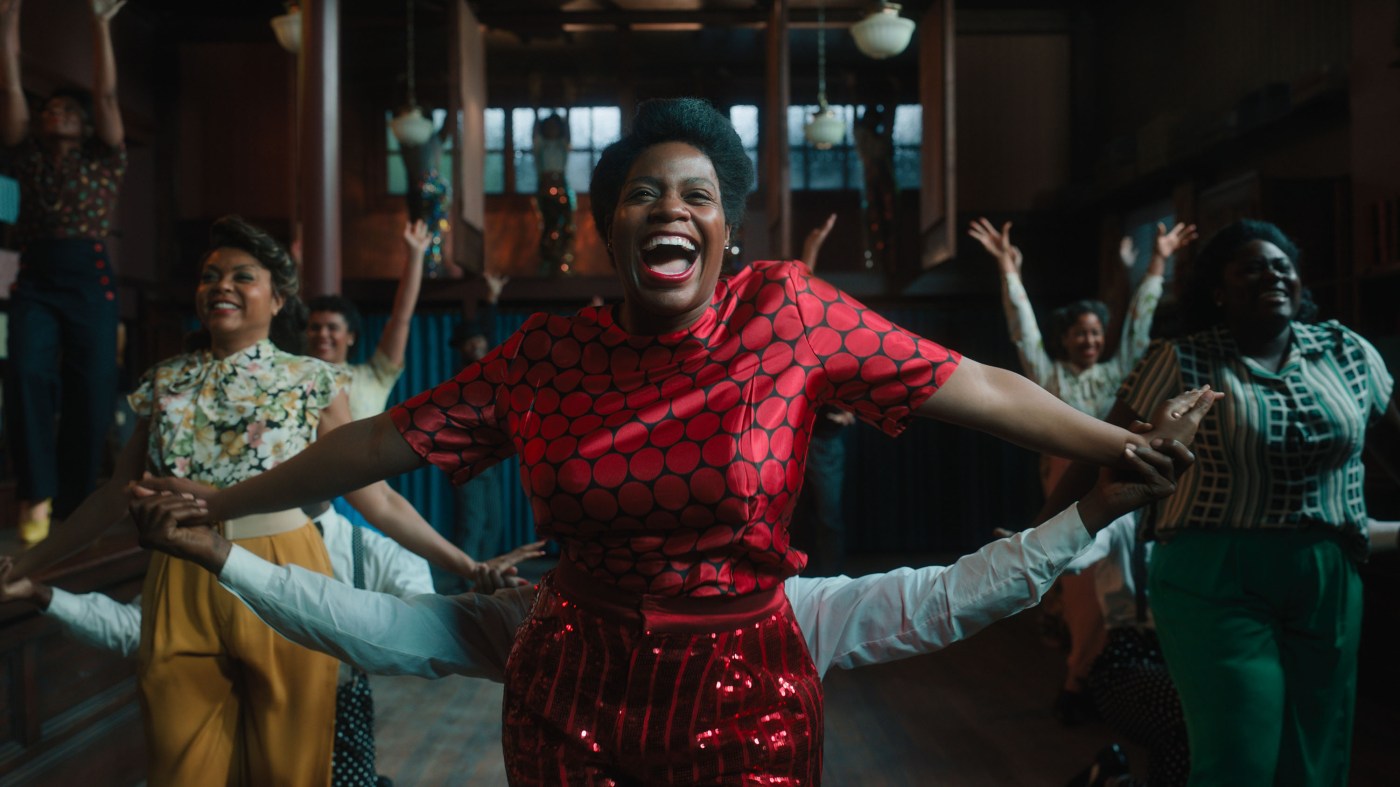
‘The Color Purple’ review: An exhilarating, larger-than-life journey
Like its central character, Alice Walker’s Pulitzer Prize-winning novel “The Color Purple” has had a long journey. Published in 1982, this lyrical story of a poor Black woman’s eventual triumph over an abusive husband and a seemingly uncaring world became a movie directed by Steven Spielberg in 1985, and then a Tony Award-winning Broadway musical in 2005. And here it is, transformed again: a new movie, based on the stage musical but featuring some new songs, directed by filmmaker/musician Blitz Bazawule.
Let me just repeat a key word in that previous sentence: This is a capital-M Musical, complete with big songs and enormous dance numbers and larger-than-life emotions — and it’s often irresistibly exhilarating, as the best musicals can be. I haven’t seen the stage version of “The Color Purple,” but I can absolutely imagine what an impact it would have on an audience, how Miss Celie’s journey would sweep you up and carry you to a higher, more joyful place. That’s basically what happens here: Bazawule slowly but surely lifts us up, letting us soar with the cast by the end.
Not that it’s an easy road to get there. Set in the American South beginning in the early 1900s and extending over several decades, “The Color Purple” has at its center a deeply troubling story: Celie, a teenager when we meet her (she’s played in the early scenes by Phylicia Pearl Mpasi and later by Fantasia Barrino), is a victim of sexual assault by her father; her two babies have been taken from her, and she’s forced to marry a cruel older man known to her only as Mister (Colman Domingo), who beats her viciously and attempts to assault her beloved sister Nettie (Halle Bailey), who flees their town. Within this nightmare, two women arrive to change Celie’s world: She finds friendship with bold Sofia (Danielle Brooks) and love with confident nightclub performer Shug Avery (Taraji P. Henson) — and ultimately, movingly, learns to love herself.
Bazawule occasionally stumbles a bit in the aftermath of the musical numbers (too often they just seem to awkwardly stop), and he and Domingo can’t quite make Mister’s late transformation into a good guy believable. (The previous movie, and to a lesser extent the book, have the same problem.) And you wonder why he, like Spielberg before him, elected to significantly downplay Celie and Shug’s physical relationship.
But he gets the most important things right: the mood, of a dark night finally giving way to a bright morning, and the cast, particularly the three central women. Brooks, with sly comic timing (listen to the spin she puts on the word “respect”; it practically has four syllables) and emotional truth, steals the movie from the moment she saunters onscreen. Henson, particularly in a lovely sequence in which she and Celie suddenly occupy a set from an old RKO musical, glows with tart charisma. And Barrino, who played this role on Broadway and on tour, opens up her heart and her glorious voice, reminding you of how remarkable it must have been to see her as Celie onstage. “I’m beautiful,” she sings at the end, “and I’m here.” It’s a triumph, and it’s earned.
‘The Color Purple’
3 stars (out of 4)
MPA rating: PG-13 (for mature thematic content, sexual content, violence and language)
Running time: 2:20
How to watch: In theaters Dec. 25
Related Articles
Movie review: Mike White’s touch helps make ‘Migration’ worthwhile journey
‘Rebel Moon Part One: Child of Fire’ review: Snyder makes soulless ‘Star Wars’
‘The Boys in the Boat’ review: Clooney navigates mostly gentle waters
What to watch: ‘Iron Claw’ is a masterpiece
‘The Color Purple’ review: Musical adaptation soars thanks to its drama


